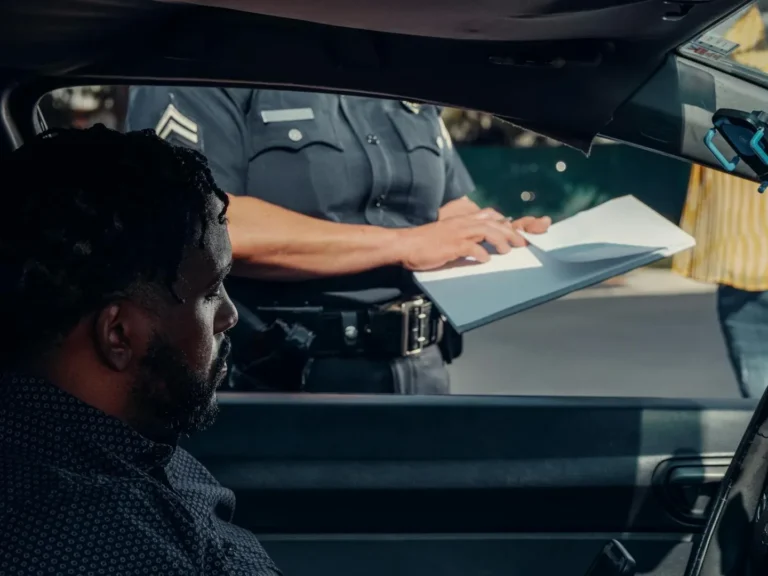Will the Feds Pick up Your Case: A Guide
When it comes to knowing if the feds will pick up your case, it can be tough to find clear answers. At ReedsAndReeds, we’ve seen how fear and uncertainty can weigh on you. I’m here to help you navigate these murky waters with firsthand advice. Discover the telltale signs that could mean federal involvement and arm yourself with the knowledge to stay prepared.
As stated by the U.S. Department of Justice, the feds may pick up your case if it involves federal law violations, crosses state lines, or includes large-scale criminal activity. The FBI or other federal agencies will investigate, and if they find enough evidence, they will take over. It becomes clear when federal prosecutors get involved.
Signs the Feds Are Investigating Your Case
One intriguing sign that the federal government is investigating your case is that you might notice unmarked vehicles frequently parked near your home.
Honestly, here are some common signs that you might be under federal investigation:
- Getting a Subpoena or Search Warrant: If you receive a document from the FBI or IRS asking for specific information or evidence, this is a major sign.
- Being Questioned by Federal Agents: Federal agents might contact you for an interview at your home, workplace, or at a federal office. They might also talk to your family, friends, or coworkers to learn more about you.
- Increased Surveillance: You might notice unusual activities like being followed, or having your phone or computer tapped. By definition, unmarked vehicles or people watching you can also be a sign.
- Financial Scrutiny: If you see unexpected checks on your finances, such as frozen bank accounts or strange IRS questions, this could mean you are under investigation.
- Local Law Enforcement: More federal law enforcement officers or close work between local police and federal agents in your area can also be a clue.
If you see any of these signs, it’s important to talk to a lawyer right away to understand your rights and what you should do next.
Federal vs. State Cases: Key Differences
Federal cases involve issues of federal law and the U.S. Constitution, while state cases pertain to state laws and are heard within the respective state’s courts.
Simply put, federal cases involve laws created by the federal government, like those in the U.S. Constitution or federal laws. State cases involve laws made by state legislatures.
There’s also a difference in where these cases are heard. Federal cases are tried in federal courts, which handle matters involving federal laws, fights between people from different states, and cases involving the federal government. State cases are heard in state courts, which deal with state laws and disputes between people from the same state.
All in all, the rules and procedures for federal and state cases can also be different. Federal cases follow federal rules for how trials are conducted and what evidence can be used, while state cases follow state rules. These differences can affect the timing of the trial, what evidence is allowed, and how decisions can be appealed.
In short, the main differences between federal and state cases are about which laws are involved, where the cases are heard, and the rules that govern them.
Common Federal Offenses to Watch For
Focusing on earlier analyses, common federal offenses to watch for include fraud, drug trafficking, identity theft, embezzlement, and conspiracy.
To cut a long story short, these crimes can lead to big problems like large fines, jail time, and a criminal record. It’s important to know the laws to avoid accidentally breaking them. If you think someone is committing a federal crime, report it to the right authorities. Federal law enforcement investigates and prosecutes these crimes to keep everyone safe and uphold the law.
Essentially, being alert and taking action can help stop these crimes and protect our community. Recognizing warning signs and understanding the risks of illegal activities can prevent federal offenses. By following the law and staying informed, you can help create a safer and fairer society.
What to Do If the Feds Contact You
As previously exemplified stay calm and cooperate; remember, you’re legally entitled to have an attorney present during any discussions with federal agents.
Come to think of it, you have the right to stay quiet and to have a lawyer with you when you’re being questioned. Do not lie or try to interfere with the investigation. Be honest with the authorities.
In general, they might ask you for documents or other evidence, so make sure to give them what they need. Talk to a lawyer before making any decisions or statements to protect your rights. It’s important to treat the situation seriously and be careful with what you do.
Legal Steps When Facing Federal Charges

Thinking about our past talks, consulting with a skilled attorney immediately can significantly impact the outcome of federal charges.
Fundamentally, you have the right to remain silent and to have a lawyer. Facing federal charges is serious, so you need to understand the charges and possible penalties. Your lawyer will help you through each step—arraignment, pretrial hearings, plea bargaining, trial, and sentencing. Be honest and work with your lawyer to build a good defense.
When it comes down to it, your lawyer might talk to the prosecutors to try to reduce charges or sentences. You might also need experts or witnesses to help your case. Always follow court rules and attend all hearings. Trust your lawyer to explain your rights and help you through the federal court system. It’s important to have a good defense plan and be ready for what might happen.
In Epilogue
Reviewing what we noted, in conclusion, the decision of whether or not the federal government will pick up your case depends on various factors such as the severity of the crime, jurisdiction, and the likelihood of successful prosecution.
What ReedsAndReeds is expecting you to is, it is important to consult with a knowledgeable attorney who can guide the best course of action based on the specific circumstances of your case.
Trending Articles
Navigating federal charges can feel overwhelming, much like handling complex legal situations in family law. If you’re also facing major life changes like divorce, having the right resources makes a big difference.
- Read more about the best online divorce services for uncontested divorce in Michigan.
- Learn more about the most affordable online divorce services available in 2025.







